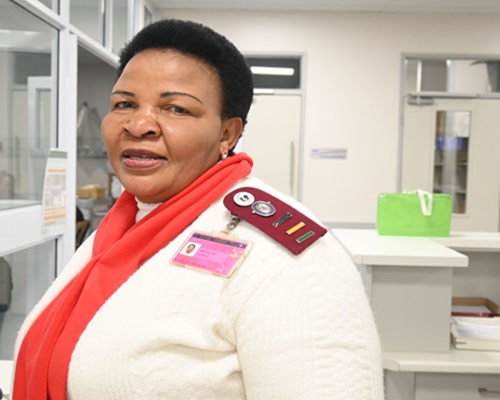Department of Health 2025/06/23 - 22:00

Rudzani Matshili
Maternal and neonatal mortality is one of the risks associated with teenage pregnancy, particularly among those who do not attend antenatal care. To explore these risks in more detail, our reporter spoke with Professional Nurse Caroline Matshetse Mmelwa.
Teenage pregnancy is regarded as high-risk, and for the past three decades, Mmelwa has cared for expectant mothers at Dr George Mukhari Academic Hospital, where high-risk pregnancies are managed.
According to Mmelwa, pregnancy in girls under 16 years is associated with a higher risk of medical complications. She explained that the physical development of teenage girls is often incomplete at that time, which can result in serious health problems during pregnancy and childbirth. Babies born to teenage mothers are more likely to be premature, have low birth weight, experience respiratory challenges, and face higher chances of maternal and neonatal mortality.
"Many of the girls have not yet finished growing themselves. Their pelvic bones may not be fully developed, which can lead to obstructed labour. Most of them give birth via C-section," she explained.
The midwife highlighted stories of the teenage mothers she has supported through pregnancy, childbirth, and early motherhood, emphasising the different ways the experience affects them. The youngest girl she cared for was just 12 years old.
"I have seen girls as young as 12 being referred to us, scared and not sure of what is happening to their bodies. One girl didn't even understand what was going on. Even after giving birth, she refused to breastfeed the baby and there was no emotional connection between them."
She further explained that most of the young mothers suffer from anxiety, as teenage pregnancy has a negative impact on their mental and emotional wellbeing.
"They are still children themselves. We refer all the teenage mothers to social workers. Counselling is important not only for them but also for the grandparents who often take on caregiving roles."
"Teen mothers are more likely to be anaemic, have low weight gain during pregnancy, and suffer from infections. Without regular check-ups, these issues often go unnoticed," she said.
She also stressed that some of the challenges teen mothers face are not just biological but are shaped by their socioeconomic conditions and emotional instability.
Contrary to popular belief, Mmelwa mentioned that most teenage pregnancies she has dealt with were not the result of sexual abuse. "Peer pressure is the biggest problem," she said, noting that in the previous year, only one case involved a teenage mother who had been sexually abused. So far, there have been no such cases this year.
She also expressed concern about the number of teenage mothers who arrive at the hospital in labour without ever having attended antenatal care, which puts both the mother and the baby at significant risk.
Another issue she highlighted is the number of pregnancies delivered by traditional birth attendants, with mothers only being referred to the hospital when complications arise.
"Late bookings or home deliveries mean some conditions, like infections, are missed until it's too late," she said.
She concluded the interview by emphasising the need for more regular school-based campaigns to educate teenagers about pregnancy prevention. "We need to promote the use of contraceptives that are suitable for teenagers, such as implants and condoms," she suggested.
RELATED NEWS
No related news

